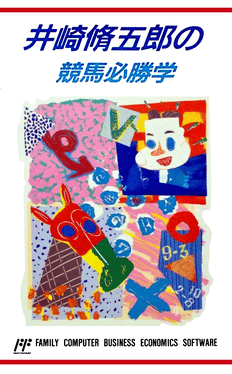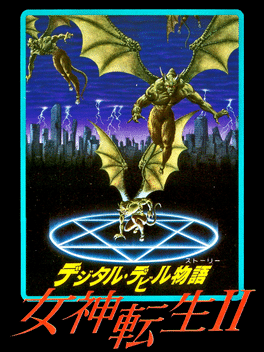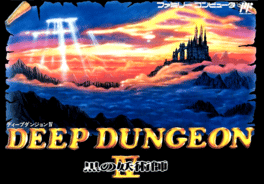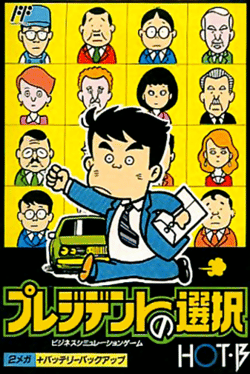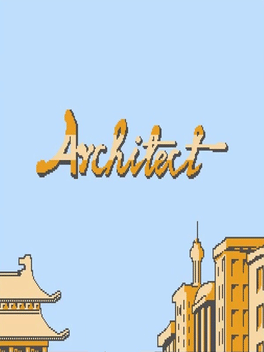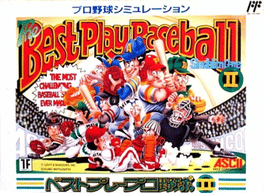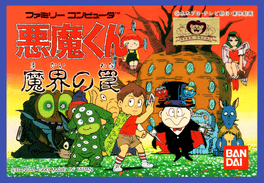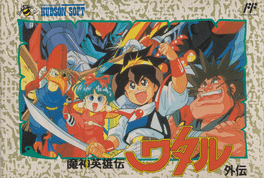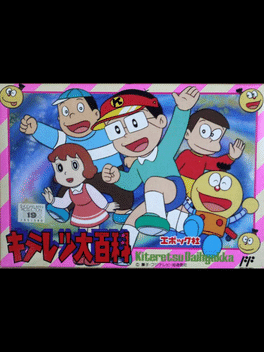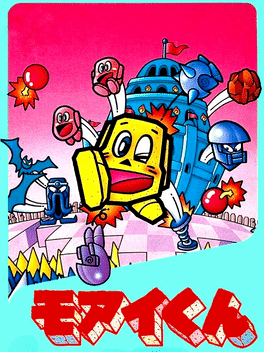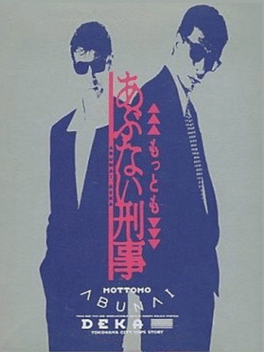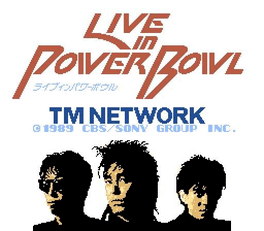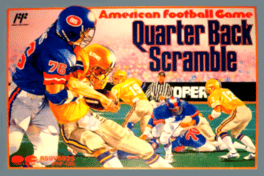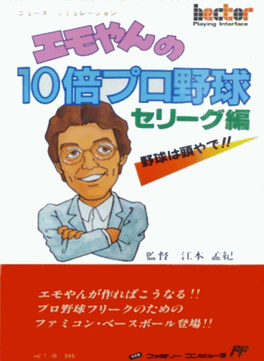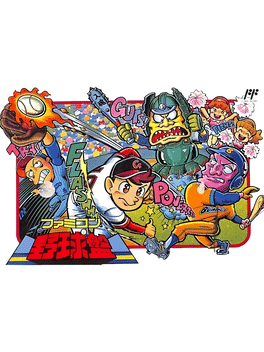New Famicom Games - Page 28
-
Sansara Naga
1990
Sansara Naga
1990
Sansara Naga is a role-playing video game that was published by Victor Music Entertainment exclusively to Japan for the Family Computer on the 23rd of March, 1990. A fan-translation was finished and released in 2013 on the 28th of December for Sansara Naga by the hacking and translation group Stardust Crusaders. Sansara Naga is set in the fantasy-filled lands of India during the Vedic age and also mixes elements of Japanese folklore such as the legend of Brahman Umibouzu ("sea bonze"). Many of the NPCs in game will tell you that Cows are sacred animals and a few will mention the Tower of Ṛta Satya. There is a set of armor in the game called Dharma Armor, which will prevent the player from dealing or being dealt damage. The story revolves around a Boy/Girl that steals a treasured Ostrich egg from the village of Orissa and decides to reflect upon one's actions; aspiring to become a Dragoon to restore their lost honor. The protagonist will set out on an adventure saving lives, performing good deeds, and raising a -
Isaki Shuugorou no Keiba Hisshou Gaku
1990
Isaki Shuugorou no Keiba Hisshou Gaku is a Sports game, developed by C-Lab and published by Imagineer, which was released in Japan in 1990. -
Quarth
1990
-
Digital Devil Story: Megami Tensei II
1990
star 7.9Digital Devil Story: Megami Tensei II is the sequel to Digital Devil Story: Megami Tensei. It was published by Namco in 1990 for the Family Computer and is the second video game in the Megami Tensei series. This is the first game in the series to not be based on the original novels by Aya Nishitani, but it retains much of the gameplay aspects of its predecessor. The music in the game is enhanced by an eight-channel Namco 163 WSG sound chip on the cartridge. -
Deep Dungeon IV: Kuro no Youjutsushi
1990
Deep Dungeon IV: Kuro no Youjutsushi is the fourth and final installment in the Deep Dungeon series. Unfortunately this game has removed the custom character feature of the previous game. Through the game, the player will meet up to two additional playable characters with predetermined class. This game also reverts to the standard practice or randomizing characters' stat growth when gaining an experience level. New to this engine is that the player can eventually learn to summon two monsters to function as a temporary additional party member for a single battle. It also removed the feature that stops random battles when the player is significantly more powerful than the enemies. This isn't as bad as it seems as the maps in this game are also much smaller (whereas the previous games used multi-floor dungeons up to 32x32 tiles, the dungeons in this game are either single floor, or multiple floors that can fit within a single 32x32 map) In this game, the player can accept "requests" from the non-player characters. Th -
President no Sentaku
1990
President no Sentaku
1990
President no Sentaku is a Strategy game, developed by Another and published by Hot-B, which was released in Japan in 1990. -
Architect
1990
Architect
1990
Architect is an unlicensed software utility released, apparently, for or with the Dr. PC Jr. (a Chinese Famicom clone system). The game plays like a drawing tool using pre-created bits of architecture. The building most commonly shown is a Chinese or Japanese-like pagoda or temple. -
Facemaker
1990
Facemaker
1990
Facemaker is a bootleg game was part of the software for a Chinese computer based on the Famicom called The Doctor PC Jr. -
The Best Play Baseball II
1990
Best Play Pro Yakyuu II is a Sports game, developed and published by ASCII Entertainment, which was released in Japan in 1990. -
Akuma-kun: Makai no Wana
1990
Akuma-kun: Makai no Wana is a Role-Playing game, developed by TOSE and published by Bandai, which was released in Japan in 1990. -
Mashin Eiyuuden Wataru Gaiden
1990
A Japanese RPG based off the long running anime television series, "Mashin Hero Wataru." -
Kiteretsu Daihyakka
1990
Kiteretsu Daihyakka
1990
Kiteretsu Daihyakka is an Action game, published by Epoch, which was released in Japan in 1990. -
Moai-kun
1990
Moai-kun
1990
Moai-kun is a puzzle video game developed and published by Konami for the Family Computer in Japan in March 1990. The game derives its themes from Easter Island; the player controls a sentient moai statue that must rescue other moai and escape each stage via a door before the timer expires. Although platforming elements are present, the primary challenge is to find a way to manipulate the objects in each stage to reach the distressed moai and rescue them while still leaving an avenue of escape to the exit door. -
Mottomo Abunai Deka
1990
Mottomo Abunai Deka
1990
Mottomo Abunai Deka is an Action game, developed by Micronics and published by Toei Animation, which was released in Japan in 1990. It is based on a Japanese movie released in 1989 with the same name. This game and the movie are both related to the late 1980s detective TV show, Abunai Deka. -
Cadillac
1990
Cadillac
1990
Cadillac is a match-three card/puzzle game hybrid released by Hect first for the Japanese Famicom and later for the PlayStation. It uses a five by five grid in which the player must position playing cards in order to create sets of three, which are then removed. The game uses a casino theme, with the game grid resembling a green felt poker table. -
Magical Jewelry
1990
Magical Jewelry
1990
The point of this game is to match a line of three or more gems, using columns of three pieces falling into the playing field, similar in mechanics to the Sega game Columns. Its background design is strongly inspired by New York City and has a depiction of the Statue of Liberty appearing on the right side of the screen. -
TM Network: Live in Power Bowl
1990
TM Network: Live in Power Bowl is a Japanese-only Nintendo Family Computer game featuring the J-Pop group TM Network. The song used as the background music is "Come On Everybody" from their album Carol - A Day In a Girl's Life 1991 -
Quarter Back Scramble: American Football Game
1990
Quarter Back Scramble: American Football Game is a Sports game, developed by Natsume and published by Pony Canyon, which was released in Japan in 1989. -
Emoyan no 10-bai Pro Yakyuu
1990
Emoyan no 10-bai Pro Yakyuu is a Sports game, published by Hect, which was released in Japan in 1989. -
Famicom Yakyuuban
1990
Famicom Yakyuuban
1990
Famicom Yakyuuban is a Sports game, developed by SAS Sakata and published by Epoch, which was released in Japan in 1989.

